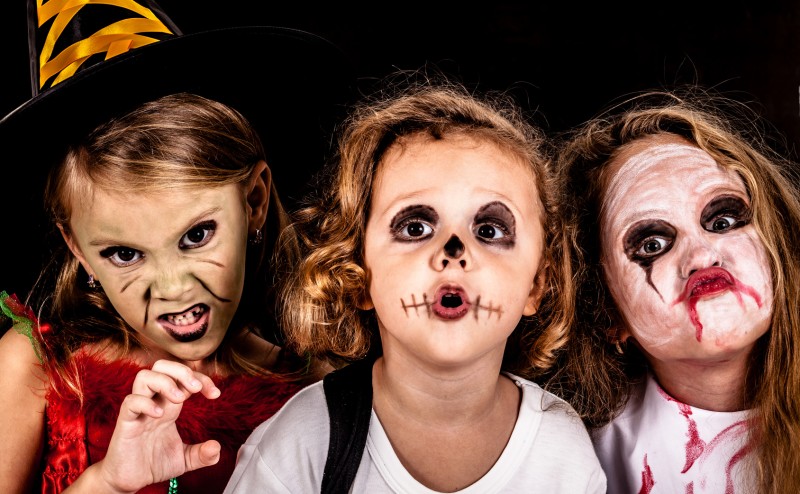
Preparing a child with Sensory Issues on Halloween
Most children eagerly anticipate Halloween. It is their night on the town. They may spend hours planning their costumes, mapping out their trick-or-treat routes and devising new ways to sort and ration their sweet haul at the end of the evening.
Kids with sensory processing disorders might see the holiday differently. Those bright and colorful costumes become too much for the eyes, or the elaborate outfits are too itchy or hinder movement. The smell of candles might be unpleasant. The noises and flashing lights at the local “haunted house” go beyond a harmless scare, causing some kids actual physical discomfort.
Like Max Braverman, a character with Asperger’s Syndrome on NBC’sParenthood, though, with a little preparation and planning, kids with sensory difficulties can have a positive and memorable Halloween experience. In this clip from the 2010 episode “Orange Alert,” Max overcomes his trepidation and comes away with a confidence-boosting victory.*
We recently spoke with Sandra Schefkind, the pediatric coordinator for the American Occupational Therapy Association in Bethesda, about how parents can prepare a child with sensory processing disorders for more tricks than treats.
“Halloween can be fun and exciting, but it can also be a little bit scary, like a clown,” Schefkind said. “Some kids think it’s the funniest, greatest thing. Other kids will look at that clown and think that’s scary. Halloween is the same kind of phenomenon, even more so … We need to be sensitive to the fact that what we are trying to convey might not be how everybody perceives it.”
Schefkind and AOTA offer the following tips for having a positive and fun Halloween experience for any child.
Practice makes perfect. All children, whether they have special needs or not, do better when they know what to expect. So read a book about trick-or-treating, or practice at home before the big night. Make sure to talk about the holiday and how some things—taking candy from strangers, for instance—are different on Halloween, and why.
Test the costume, and take their sensitivities into account. Have children try on their costumes to make sure the outfits aren’t too itchy, tight or stiff, and that they can move easily in it. If they don’t like having things touch their faces, don’t include make-up or a mask. If they are physically uncomfortable, they will not have fun trick-or-treating.
There is more than one way to celebrate the holiday. Sure, everyone knows about trick-or-treating, but pick what works for your family. If it’s not trick-or-treating, tell your child you are celebrating by carving pumpkins or jumping in the leaves, Schefkind suggests. Or make it about celebrating fall, with apple-picking or a hayride.
Adapt the party activities. Rather than delving into the gooey innards of gourds to carve pumpkins, decorate them with stickers or paint. Remember that not everyone likes the same games, and some of the typical Halloween party fare (guess what is in this bowl while blindfolded) might cause sensory overload for some, and plan accordingly.
“One child may not want to bob for apples,” Schefkind said. “Rather than forcing the child or berating the child, have the child participate in a way that they are comfortable with, such as putting the apples in the bucket. This way they are still part of activity, but is a comfortable fit for them.”
Less is more. Monitor your children throughout the Halloween festivities, and try to end the holiday celebrations before they have a meltdown. If you notice they are getting cranky or tense, it’s time to head home. Ending on a high note is crucial to children’s self-confidence and sense that they had a positive experience.
“Feeling successful can help build their sense of self, their independence, their self-esteem,” Schefkind said. “They will go to sleep thinking that Halloween was a fun time: I took a risk, things were not within my normal routine, but I had a successful day. We want to try to be careful about not going too far.”
*View the video and full article here: http://www.washingtonpost.com/blogs/on-parenting/post/preparing-a-child-with-sensory-issues-for-halloween/2011/10/26/gIQABmB7MM_blog.html
children, CLUES, family, Halloween, october, parenting, sensory, tips





